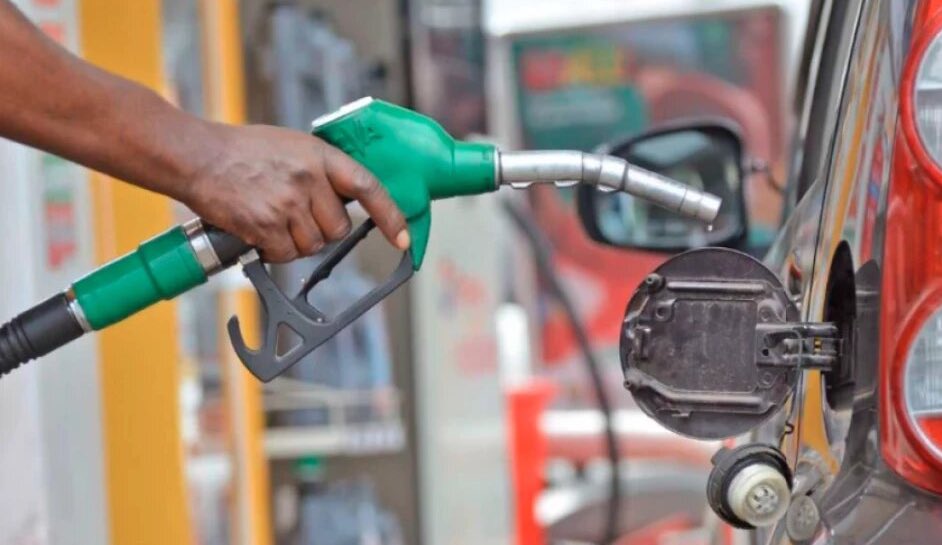Business
Fuel Prices Soar As EPRA Announces Sharp Increases in July Review
The fuel price increases are expected to trigger a cascade of economic consequences across multiple sectors.

Motorists and households face fresh financial strain as petroleum products jump by up to Ksh9.65 per litre
Kenyans are bracing for another wave of economic pressure as the Energy and Petroleum Regulatory Authority (EPRA) announced substantial increases in fuel prices effective Monday, July 15, 2025, through August 14, 2025.
The latest pricing review delivers a harsh blow to consumers already grappling with elevated living costs, with super petrol climbing by Ksh8.99 to retail at Ksh186.31 per litre in Nairobi.
Diesel prices have increased by Ksh8.67 to Ksh171.58 per litre, while kerosene has recorded the steepest jump of Ksh9.65, now retailing at Ksh156.58 per litre.
The price surge reflects the reality of Kenya’s heavy dependence on imported refined petroleum products, with EPRA citing elevated average landed costs between May and June 2025 as the primary driver.
Super petrol’s landed cost jumped 6.45 percent from US$590.24 to US$628.30 per cubic metre, while diesel rose 6.27 percent and kerosene spiked 6.95 percent during the same period.
“The higher landed costs mirror the sustained global oil rally over the past two months, driven by geopolitical uncertainty and production cuts by major oil-exporting countries,” EPRA stated in its announcement on Monday.
The regulator emphasized that Kenya’s local fuel prices remain heavily influenced by international market dynamics, with the country’s reliance on imported refined fuel leaving consumers vulnerable to global price volatility.
The fuel price increases are expected to trigger a cascade of economic consequences across multiple sectors.
Transportation costs will inevitably rise, potentially pushing up the prices of essential goods and services as businesses pass on increased operational expenses to consumers.
The timing of the increases is particularly challenging for households already dealing with inflationary pressures.
With Kenya’s inflation rate standing at 3.80 percent in June, the fuel price hikes threaten to add further strain to family budgets and could potentially drive inflation higher in the coming months.
Food prices, in particular, are likely to feel the impact as fuel costs represent a significant component of transportation and production expenses for agricultural products.
Historical data shows that fuel price increases in Kenya typically translate to higher costs for essential commodities within weeks of implementation.
The fuel price increases will affect different regions across Kenya, with variations based on transportation costs to different distribution centers.
In Mombasa, super petrol, diesel, and kerosene will retail at Ksh174.01, Ksh159.62 and Ksh143.64 per litre respectively, while in Kisumu, prices were set at Ksh177.28, Ksh163.23 and Ksh147.30 per litre.
EPRA maintains that it operates within a legally defined pricing formula designed to protect consumers while ensuring industry sustainability.
The regulator has directed consumers to review detailed retail and wholesale prices for various towns and depots through annexes available on its official website and communication channels.
The fuel price increases come at a time when the government is under pressure to address the rising cost of living, which has become a significant concern for ordinary Kenyans.
The latest hikes are likely to intensify public discourse around fuel subsidies and the need for alternative energy solutions to reduce the country’s dependence on imported petroleum products.
As Kenya continues to grapple with global economic uncertainties, the fuel price increases underscore the interconnected nature of international markets and local economic conditions.
The full impact of these price changes will become clearer in the coming weeks as businesses and consumers adjust to the new cost structure.
For motorists and households, the immediate focus will be on budget adjustments and potentially seeking more fuel-efficient alternatives as the country navigates another period of increased energy costs.
The fuel price increases take effect from Monday, July 15, 2025, and will remain in place until August 14, 2025, when EPRA will conduct its next monthly review.
Kenya Insights allows guest blogging, if you want to be published on Kenya’s most authoritative and accurate blog, have an expose, news TIPS, story angles, human interest stories, drop us an email on [email protected] or via Telegram
-

 Grapevine5 days ago
Grapevine5 days agoAlleged Male Lover Claims His Life Is in Danger, Leaks Screenshots and Private Videos Linking SportPesa CEO Ronald Karauri
-

 Lifestyle1 week ago
Lifestyle1 week agoThe General’s Fall: From Barracks To Bankruptcy As Illness Ravages Karangi’s Memory And Empire
-

 Americas2 weeks ago
Americas2 weeks agoEpstein Files: Bill Clinton and George Bush Accused Of Raping A Boy In A Yacht Of ‘Ritualistic Sacrifice’
-

 Investigations1 week ago
Investigations1 week agoEpstein Files: Sultan bin Sulayem Bragged on His Closeness to President Uhuru Then His Firm DP World Controversially Won Port Construction in Kenya, Tanzania
-

 News2 weeks ago
News2 weeks agoAUDIT EXPOSES INEQUALITY IN STAREHE SCHOOLS: PARENTS BLED DRY AS FEES HIT Sh300,000 AGAINST Sh67,244 CAP
-

 Business2 weeks ago
Business2 weeks agoKRA Can Now Tax Unexplained Bank Deposits
-

 Grapevine23 hours ago
Grapevine23 hours agoRussian Man’s Secret Sex Recordings Ignite Fury as Questions Mount Over Consent and Easy Pick-Ups in Nairobi
-

 News1 week ago
News1 week agoState Agency Exposes Five Top Names Linked To Poor Building Approvals In Nairobi, Recommends Dismissal After City Hall Probe














